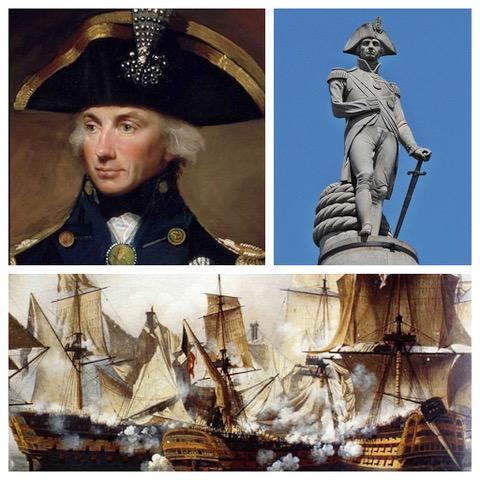
28 Oct Three Keys to Victory At Trafalgar: “TEAMWORK, TONE, TENACITY”
October 21st marked the anniversary of one of the greatest – if not the greatest – naval victories in history: The Battle of Trafalgar. Off Spain’s Atlantic Coast in 1805, British Admiral Lord Nelson and his 27 ships decisively defeated a combined French-Spanish fleet of 33 ships. The amazing victory ensured Napoleon would remain ashore in Continental Europe and give up on any plans to invade England.
Nelson’s brilliance as a maritime warfighter and leader were second to none. The factors that led to this historic victory are still taught at military war colleges today. The three most significant:
- TEAMWORK: Nelson trusted his subordinate and knew how to delegate authority. He called his ship Captains “Entrepreneurs of Battle.” Each was encouraged to take initiative, think on their own in the absence of specific orders and were rewarded for doing so. This decentralized style of teamwork resulted in initiative, innovation and speed of action in combat. The French and Spanish Fleet, by comparison, operated with a top-down, controlled, management model. When the “poo hit the fan” and chaos ensued once the fight began, opposing French Admiral Villeneuve admittedly lost control of the battle around him and his subordinates were indecisive awaiting for direction from above. The TEAMWORK lesson here: Once subordinates have proven their trustworthiness and reliability, relinquishing direct control over them can result in greater team proficiency and performance.
- TONE: Tone is a synonym for the mood, the atmosphere, the culture of an organization. It’s often punctuated by short, stirring words of inspiration from a leader to the team. Nelson and his Captains were battle-experienced with a tradition of victory at sea. What words and in what fashion did Nelson choose to deliver his pre-combat guidance to motivate the Fleet? In typical understated British fashion, it was simply, “England expects that every many will do his duty.” ‘Nuff said! Sometimes “less is more” when it come to rousing speeches and setting an inspiring Tone for a team. Great leaders are great communicators and Nelson was just that.
- TENACITY: British seamen fought fiercely and tirelessly by applying precision canyoneering from afar, and rifle, grappling hooks and sword fighting fierceness up-close. The British suffered 1,500 casualties … The French/Spanish suffered 17,000. The greatest British loss of the day was Nelson himself who was Killed In Action by a French sharpshooter during a close-in ship engagement (Nota Bene: Nelson aggressively led from the front, not passively from the rear). French Admiral Villeneuve (captured in battle) confessed that his Fleet would not be able to continue fighting leaderless like the victorious British did after the loss of their tenacious Admiral. Tenacity is more than endurance: it’s perseverance with a purpose and a focus on achieving the desired outcome no matter the obstacles. At Trafalgar both sides fought long and hard, but the more tenacious side was the British who tirelessly trained for such a battle, were aware of the stakes if they lost and were inspired by the words and deeds of their leader, Admiral Nelson.
The impact of “T3” at Trafalgar was that British seapower emerged supreme and would remain so for a century. “Trafalgar Night” is still celebrated by the Royal Navy every October. To commemorate the event stories are told and toasts are offered by members of the Wardroom that highlight the valor and victory of their predecessors. The evening also offers an opportunity to reflect upon the “T3” exercised by Nelson and the Royal Navy 200+ years ago which still inspires and teaches us today.

Sorry, the comment form is closed at this time.